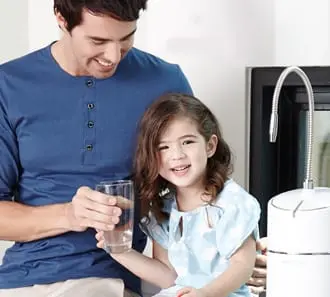NSF International, a global independent public health and safety organization, has provided this guideline for consumers on how to properly use NSF certified water filters.
Water filters need to be changed regularly in order to reduce VOCs, turbidity and chlorine which QNET HomePure is certified. Follow the manufacturer’s instructions that come with your water treatment system and replace filter cartridges and other items as recommended using NSF certified filters.
Why Filters Must Be Changed
Many filtration systems use carbon, charcoal or a blend of filter media to help reduce impurities. These systems generally reduce contaminants in one of two ways:
- Some contaminants are filtered mechanically, meaning the particles are large enough to be trapped in the pores of the filter. Eventually, the pores of the filter become so clogged with debris that water is unable to move through the filter effectively.
- Other contaminants adhere or adsorb to the surface of the filter media. Over time, the surface area of the filter media becomes filled and no more contaminants can be adsorbed.
While the former is easy to spot (the flow rate of the water being produced by the system slows dramatically), it’s not as easy to tell when the surface area of the filter media has become full and needs to be changed.
How Often They Need To Be Changed
The recommended filter change cycle varies from one product to the next. Home filtration systems usually have established “service cycles,” however extra precaution should be take when tap water contains high levels of contaminants.
- Certification to NSF/ANSI 53 requires manufacturers to state the filter capacity, which is the volume of water that can pass through a filter before it must be changed.
- To ensure the filter continues to reduce contaminants, replace it when it has reached the manufacturer’s recommended filter capacity. The filter capacity will be listed in the specifications on your product’s owner’s manual or on the product packaging. Many products also have a device that indicates when the filter must be changed.
Choosing The Right Replacement Cartridge
Filter cartridges are not universal.
- While a non-certified cartridge may look similar in size and even appear to fit inside the housing of a water treatment system, even the smallest size difference could allow contaminated water to go around the cartridge rather than through it.
- Non-certified filter cartridges may not be of the same quality as the manufacturer’s recommended replacement. This could result in causing leakage of water in your homes or the water not being filtered effectively or even the introduction of chemicals into the water from materials that were never verified to be acceptable for drinking water.
- To ensure your water treatment system is performing effectively, use the proper replacement cartridge and change your filter at the recommended interval.







